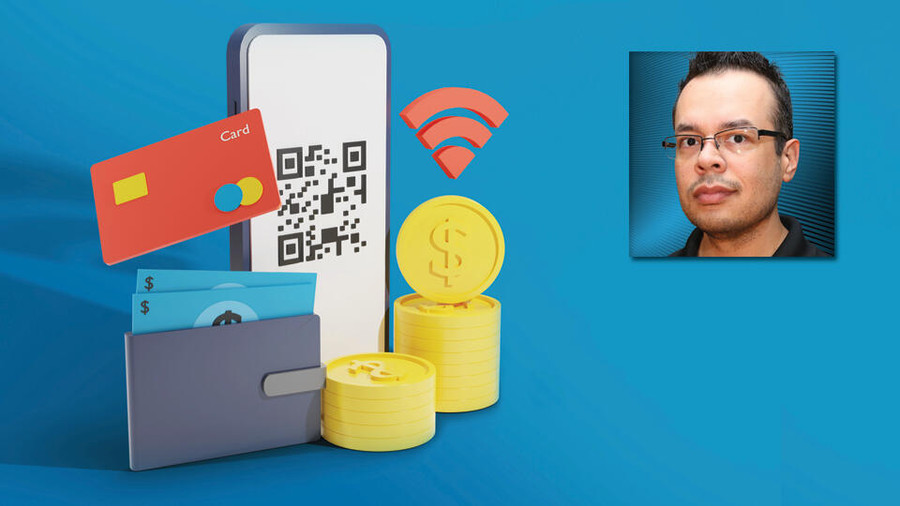The ways consumers can spend their money are constantly evolving, becoming easier and more streamlined. Setting up your business to accept various types of payments should be just as simple. The goal is to make it as easy as possible for your clients to pay you for goods and services. Hopefully, the efficiency of your payment system can even help you build some repeat business.
Small business owners face a mountain of challenges on a daily basis; making payments easier for your customers to complete and your team to manage is just one of those crucial tasks. As a result, many are jumping on the mobile payments bandwagon. There are also more and more people working from home, and staying home in general, so online sales have soared and will likely continue to do so. Meanwhile, consumers like to have options in all things, and how they pay is no exception.
Accepting a variety of payment methods, including text-to-pay, can help small businesses attract new clients and receive payments faster from existing customers.
Fortunately, there is a range of online payment methods available for small businesses, allowing clients to pay in whatever way is most convenient for them. Accepting a variety of payment methods, including text-to-pay, can help small businesses attract new clients and receive payments faster from existing customers. When choosing a payment processor for your business, you will want to make sure they offer many if not all of the payment options we will mention here.
Credit Card Payments on Your Website
You can add a simple payment form to your business website that will allow you to accept credit card payments. This can be done easily by outsourcing to an online payment service provider, which will then host the payment form, oversee secure payment processing and safely store the payment information of your returning clients, with their permission.
Mobile Payments
Many businesses these days work outside of a storefront setting — think festivals, conventions, markets, special events — and need to be able to accept payments on-site. Setting up mobile payments can be a great solution for receiving payment quickly, in person. To accept mobile payments, businesses need to invest in a mobile card reader. Mobile card readers plug into your phone or connect via Bluetooth, and work with a mobile app to process credit and debit payments from anywhere through a smartphone. Many mobile card readers also offer contactless payments, or tap-to-pay, like Apple Pay, Google Pay, Samsung Pay and, of course, the traditional contactless credit cards found in most of our wallets today.
eCheck Payment Through Direct Transfer
You can enable your clients to easily transfer payments directly from a bank account by accepting eCheck payments. eChecks let clients enter the banking information usually found on a paper check into an online form, to send a direct transfer from their bank account to yours. As a bonus, the fees associated with eCheck payments are lower than those associated with credit card payments. These payments can be set up as a one-time transfer or on a recurring basis, depending on your business model.
Automatic Bill Pay
If you accept online payments by credit and debit card, you can offer clients the option of setting up automatic billing. This allows them to schedule recurring invoice payments so that the money is transferred automatically on a specified date. That way, clients don’t have to do any work to send your payment, and you can receive your money faster.
Text-to-Pay
Text-to-pay is a payment solution that allows your customers to make a payment via texting on their smartphones. This form of payment is increasingly in demand in almost every industry.
Text-to-pay is quite simple to implement; your payment processor will walk you through the process. Customers use a unique link on their cell phones to pay for your products and services. Adding text-to-pay to your technology stack can help you stay competitive and provide additional convenience for your customers.
Cash Discounting
Don’t forget about cash discounting. You may be eligible to recover most, if not all, of your credit card processing fees with a cash discounting program. This service is available in most states for most business models, and is a great way to defray the expense associated with accepting credit cards.
With all of these options available, you will want to make sure you choose a payment processor that is knowledgeable and experienced with each platform, and provides 24/7 support. Today’s payments technology is moving fast, and you don’t want your business to be behind the times.
Jonathan Corona has two decades of experience in the electronic payments processing industry. As chief operating officer of MobiusPay, Corona is primarily responsible for day-to-day operations as well as reviewing and advising merchants on a multitude of compliance standards mandated by the card associations, including, but not limited to, maintaining a working knowledge of BRAM guidelines and chargeback compliance rules defined in both Visa and Mastercard operating regulations.







